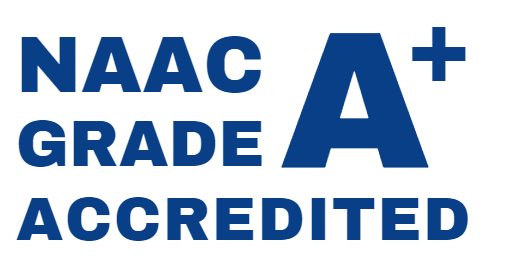PEO's & PO's
PEO
PEO 1 Fundamental Knowledge :
To utilize science and engineering principles together with modern tools in solving control and automation engineering problems, design high quality engineering systems, as well as propose implementable solutions for related interdisciplinary problems.
PEO 2 Career Development :
To apply cross functional knowledge, modern computational concepts and tools to accommodate changing needs of society.
PEO 3 Social Identity :
To apply high standards in the performance of their professional work with ethical, societal and environmental awareness.
PO's
PO1- Engineering Knowledge (Theory/ Practical / Project work):
Apply the knowledge of mathematics, science, engineering fundamentals, and an engineering specialization to the solution of complex engineering problems.
PO2 : Problem Analysis (Theory / Practical / Projects):
Identify, formulate, research literature, and analyze complex engineering problems reaching substantiated conclusions using first principles of mathematics, natural sciences, and engineering sciences.
PO3 : Design/Development of Solutions (Theory / Practical / Projects):
Design solutions for complex engineering problems and design system components or processes that meet the specified needs with appropriate consideration for the public health and safety, and the cultural, societal, and environmental considerations.
PO4: Conduct Investigations of Complex Problems (Theory / Practical):
Use research-based knowledge and research methods including design of experiments, analysis and interpretation of data, and synthesis of the information to provide valid conclusions
PO5: Modern Tool Usage (Theory / Practical / Project work):
Create, select, and apply appropriate techniques, resources, and modern engineering and IT tools including prediction and modeling to complex engineering activities with an understanding of the limitations
PO6: The Engineer and Society (Theory / Industrial Visit / In plant Training):
Apply reasoning informed by the contextual knowledge to assess societal, health, safety, legal and cultural issues and the consequent responsibilities relevant to the professional engineering practice
PO7: Environment and Sustainability (Theory / Industrial Visit / In plant Training):
Understand the impact of the professional engineering solutions in societal and environmental contexts, and demonstrate the knowledge of, and need for sustainable development
PO8: Ethics (Theory / Industrial Visit / In plant Training):
Apply ethical principles and commit to professional ethics and responsibilities and norms of the engineering practice
PO9: Individual and Team Work (Projects):
Function effectively as an individual, and as a member or leader in diverse teams, and in multidisciplinary settings
PO10: Communication (Projects/ Seminar/ Mini Project):
Communicate effectively on complex engineering activities with the engineering community and with society at large, such as, being able to comprehend and write effective reports and design documentation, make effective presentations, and give and receive clear instructions
PO11 : Project Management and Finance (Projects):
Demonstrate knowledge and understanding of the engineering and management principles and apply these to one’s own work, as a member and leader in a team, to manage projects and in multidisciplinary environments
PO12 : Life-long Learning (Projects / Higher Studies):
Recognize the need for, and have the preparation and ability to engage in independent and lifelong learning in the broadest context of technological change
PSO
PSO1 :
Ability to understand and perform manufacturing and production systems encapsulated with automation.
PSO2:
Ability to carry out mechanical and electronic systems design and coding for robotic applications.


